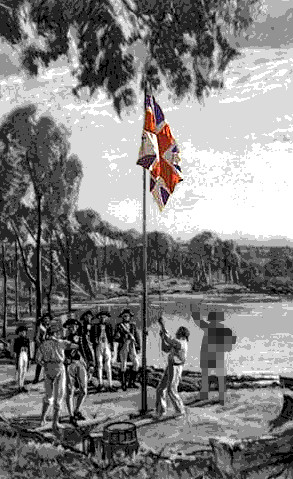Ceremony scrapped in date fight
 Feathers have been firmly rustled by a Melbourne Council’s decision to stop referring to January 26 as Australia Day.
Feathers have been firmly rustled by a Melbourne Council’s decision to stop referring to January 26 as Australia Day.
Yarra City Council in Melbourne's inner north-east will replace the citizenship ceremony traditionally held on that date with an event “marking the loss of Indigenous culture”.
The decision was made after a poll of about 300 residents and consultations with up to 100 local Indigenous people about new ideas for a day often referred to as ‘Invasion Day’.
The council has elected to hold a small-scale, “culturally sensitive” event featuring a smoking ceremony on January 26.
It will also adopt a communications plan for “broader community education to help people better understand Aboriginal community experiences of January 26”.
Yarra Council will refer to the day as ‘January 26’ until another term is adopted nationally, officially supporting the #changethedate campaign and lobbying the Federal Government to change the date of Australia Day.
Yarra Mayor Amanda Stone was asked what the council hoped to achieve.
“We’re hoping to get people to think about what the date of January 26th means for the whole community,” she told the ABC.
“We’ve been informed very consistently from the Aboriginal community in Yarra and more broadly that it’s not a day of celebration for them, and it’s very hard to reconcile having a day of national celebration when one whole sector of the population feels excluded.
“We’d really like people to reflect on that… January 26 will continue to be a public holiday, so people will still have that opportunity to think about what that date means.”
The move is supported by the peak body for local government, the Australian Local Government Association.
Prime Minister Malcom Turnbull and Opposition Leader Bill Shorten criticised the move, and Assistant Minister for Immigration Alex Hawke revoked the city’s authorisation to conduct citizenship ceremonies.
Councils have legal duties under the Australian Citizenship Ceremonies Code, including having ceremonies that “are non-commercial, apolitical, bipartisan and secular” and not “used as forums for political, partisan or religious expression”.
Mr Hawke insisted the council was making “a very political motion about Australia Day”.
“The code is there to make sure that councils don't do these sorts of things. We don't want citizenship ceremonies being used as a political argument for anybody's political advancement one way or the other.”
But the Mayor does not see how the move is political, issuing a statement saying: “We do not believe we are in breach of the Citizenship Ceremonies Code, and we will be seeking to discuss this matter with the Assistant Minister as soon as possible”.
Other councils have tried similar moves in the past, with both Fremantle and Hobart considering scrapping citizenship ceremonies on Australia Day.
Mr Hawke said he “had a good chat with those mayors and we had a good resolution where they backed down on it.
“In Fremantle the mayor conducted a citizenship ceremony on Australia Day and the council still held their own views.”
Three other Melbourne councils – Moreland, Darebin and Hepburn Shire – will debate whether to follow Yarra’s lead at upcoming meetings.
Former prime minister Tony Abbott called it an ‘attack’ on Australia Day by a “mad lefty council”.







 Print
Print